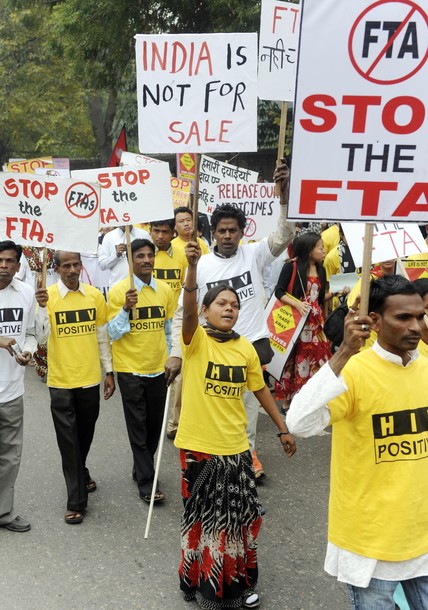Commission and New Delhi in fresh FTA push

EUROPOLITICS | Wednesday 06 April 2011
Commission and New Delhi in fresh FTA push
By Sébastien Falletti in Seoul
The EU and India are holding this week critical talks in order to remove the remaining stumbling blocks to their bilateral free trade negotiations. The outcome of the meetings, held in New Delhi and then Brussels, will reveal whether the sides can clinch a historic free trade agreement (FTA) by the summer, Europolitics understands. Director-General for Trade Jean Luc de Marty (DG Trade) and Indian Commerce Secretary Rahul Khullar will touch upon the most sensitive issues of the FTA during their two-day meeting, on 7-8 April in Brussels. Depending on the outcome, they could set up a ministerial meeting involving Trade Commissioner Karel De Gucht in May.
The EU and India are stepping up their efforts to conclude their far-reaching free trade talks launched in 2007. The EU’s Chief Negotiator, Ignacio Garcia Bercero, prepared thoroughly the ground for the Brussels session during a two-day meeting with his Indian counterpart, P.K. Chaudhary, on 4-5 April in New Delhi. They reviewed the most controversial points, which will decide the fate of the FTA. Cars, pharmaceuticals, intellectual property rights (IPR) and wines and spirits are the remaining stumbling blocks, which are on the table this week. Progress on these points is essential for the EU to be able to conclude the FTA.
Access to the fast-growing Indian car market has emerged as a deal breaker earlier this year, when New Delhi requested the exclusion of the automotive sector from the agreement. India, which aims to protect its domestic car makers, said it was only willing to liberalise its car parts sector. This position is unacceptable for the European negotiators, who are under pressure from ACEA, the European Automobile Manufacturers’ Association. The ACEA is calling for the "full dismantling of automotive tariffs" as well as the "elimination of all non-tariff trade barriers within a reasonable time, and provision for a mechanism to prevent the introduction of new ones". BusinessEurope is opposing the exclusion of any sector from the deal.
The standoff over cars mirrors the tensions over pharmaceuticals. The EU is asking for a better protection of the IPR of its pharmaceutical groups, while India wants to protect its large generic drugs industry. This issue has become highly political in India with civil society groups and NGOs, such as Doctors Without Borders, accusing the EU of threatening access to anti-HIV drugs for the poorest. New Delhi says the EU is challenging the rights enshrined in the World Trade Organisation’s TRIPS agreement, which allows developing countries to develop generic drugs. The EU side argues that patent protection is essential in order to develop new patents and that this would also serve the interests of India’s fast-growing pharmaceutical industry.
"We are looking at summer"
Public procurement and better access to the wine and spirits market in India are also key priorities for the Commission’s negotiators. EU firms are eager to get preferential access to the huge and fast-growing market of 1.3 billion people, which is still protected by high tariffs. Building on the successful conclusion of an ambitious FTA with South Korea last year, the Commission hopes to conclude a historic deal with Delhi ahead of the US.
After a slow start, talks have picked up speed during the autumn of 2010, prompting both sides to aim for the conclusion of the talks by spring 2011. However, this target date seems untenable since differences appear to persist over highly sensitive issues. The Indian side has now called for the conclusion of the talks by the end of this year. Meanwhile, the Commission is keeping up the pressure in the hope of achieving a breakthrough earlier. "We are looking at summer," an EU source told Europolitics.Depending on the outcome of this week’s talks, De Gucht could travel to India next month in order to push for further progress or to address the most sensitive issues still on the table. The commissioner is scheduled to travel to Indonesia on 5 May for a meeting with the ASEAN and could stop by in India on his way, if the conditions are right.





